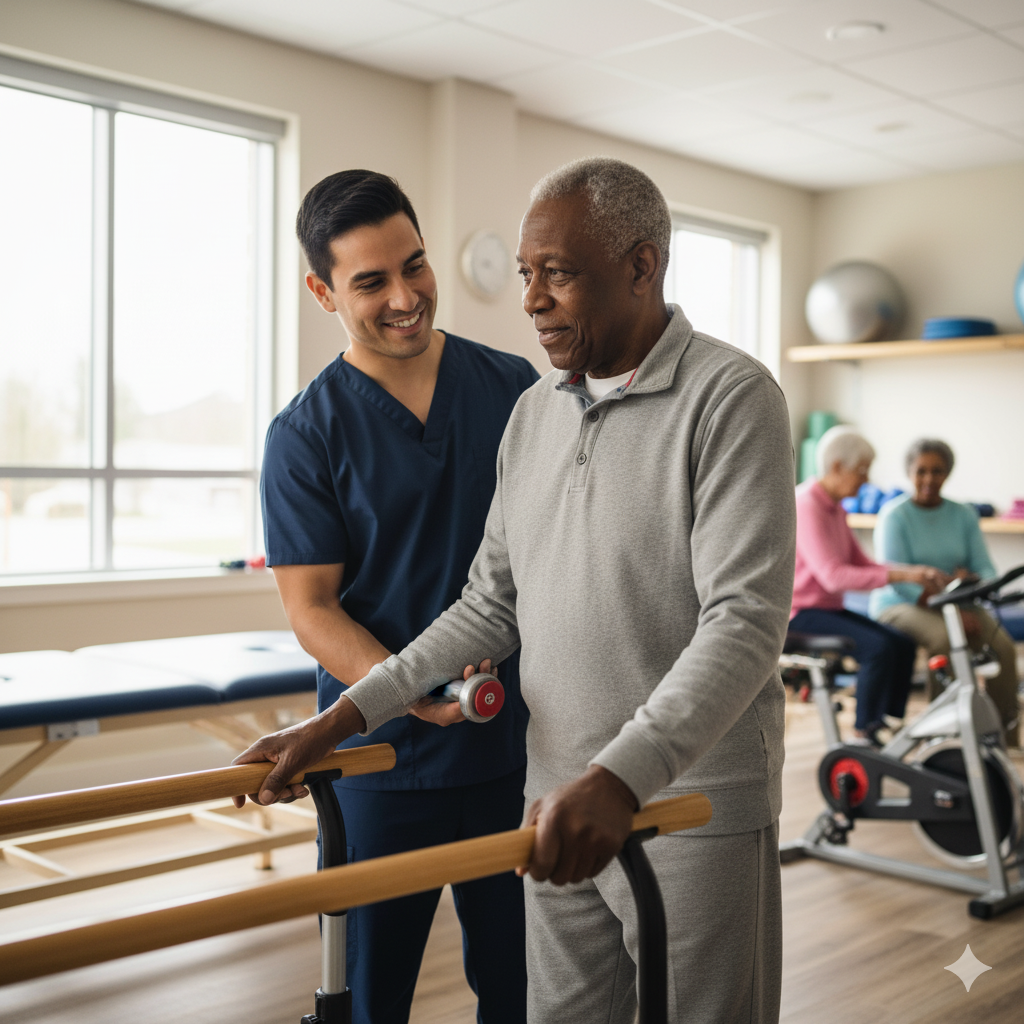Post Surgery Home Care: A Compassionate Guide to Healing at Home
Key Takeaways
- Preparation is key:
Set up a safe, restful environment before returning home.
- Follow medical instructions:
Take medications and manage wound care as prescribed.
- Eat and hydrate well:
Proper nutrition supports tissue repair and immunity.
- Move gradually:
Gentle activity improves circulation and prevents stiffness.
- Prioritize emotional well-being:
Patience, rest, and support ease the healing process.
- Ask for help when needed:
Don’t hesitate to seek assistance from family, friends, or professionals.
Why Home Care Matters After Surgery
Once you leave the hospital, you no longer have 24-hour medical supervision. Instead, you or your caregivers must manage pain, nutrition, hygiene, and follow-up routines independently.
This period is crucial because what happens at home often determines how smoothly recovery progresses. Proper postoperative home care helps prevent infections, ensures wounds heal properly, and supports overall comfort.
A good home care plan helps lower hospital readmissions. It lets patients recover where they feel most comfortable: at home.
Preparing Your Home for Recovery
A few simple preparations can make your home safer and more comfortable after surgery.
1. Choose a Safe and Accessible Space
Set up a recovery area on the main floor if possible, especially if you have stairs. Keep essentials like medication, water, tissues, and your phone nearby.
2. Clear Pathways
Remove clutter, loose rugs, and cords. Adequate lighting — especially at night — prevents falls.
3. Stock Essentials
Have enough supplies like bandages, hand sanitizer, and clean linens ready before discharge. Stock easy-to-heat meals and plenty of fluids.
4. Arrange Support
Ask a family member or friend to stay with you, at least during the first few days. Having someone nearby for assistance provides both safety and peace of mind.
Managing Pain and Medication
Pain management is one of the most important aspects of post surgery home care. Uncontrolled pain can slow recovery, disrupt sleep, and affect mood.
- Stick to your medication schedule. Take prescribed doses on time.
- Avoid mixing medications without consulting your doctor.
- Monitor for side effects like nausea or dizziness.
- Use non-drug comfort methods — such as positioning pillows or relaxation breathing — to help ease discomfort.
Keep a written record of what you take and when. If managing multiple prescriptions feels difficult, a caregiver or family member can help track doses and monitor reactions.
Healing Through Nutrition and Hydration
The body needs extra nourishment after surgery to rebuild tissues and strengthen immunity.
- Protein (fish, eggs, beans, tofu) supports wound healing.
- Vitamins C and A (citrus fruits, carrots, leafy greens) boost immune response.
- Zinc and iron (nuts, red meat, lentils) aid cell repair and energy.
- Water keeps tissues hydrated and supports digestion.
Aim for balanced, smaller meals throughout the day and drink plenty of fluids unless your doctor advises otherwise.
Gentle Movement and Physical Recovery
While rest is important, light activity helps prevent stiffness and improves circulation. Doctors often recommend short, slow walks or guided physical therapy within days of surgery.
- Follow your provider’s timeline — don’t rush.
- Use mobility aids like walkers or handrails if needed.
- Avoid lifting, bending, or stretching beyond comfort.
- Rest when you’re tired — healing requires energy.
Each person’s progress looks different. Listen to your body and pace your recovery accordingly.
Emotional and Mental Recovery
Healing after surgery isn’t only physical. The sudden change in mobility, daily routine, and independence can affect emotional health too.
Some patients feel frustration, restlessness, or loneliness — especially if recovery lasts several weeks. Try to:
- Stay in touch with loved ones through calls or visits.
- Keep a journal to track progress and gratitude.
- Include calming routines like reading or listening to music.
- Seek counseling if you feel anxious or depressed.
Emotional care is as vital as wound care. A calm, supportive environment helps the body heal faster.
When to Call Your Doctor
Even with the best care, complications can occur. Contact your healthcare provider if you experience:
- A fever over 101°F (38.3°C)
- Increasing pain, swelling, or redness around the incision
- Foul-smelling or excessive drainage
- Shortness of breath or chest pain
- Persistent vomiting or dizziness
Don’t wait until symptoms worsen. Early communication prevents more serious complications.
When to Consider Professional Home Care Support
Sometimes, recovery requires more help than family can provide — especially after major surgery or for patients with mobility challenges. In these cases, professional home caregivers can make recovery smoother and safer.
They can assist with personal hygiene, medication reminders, light housekeeping, and meal preparation. Having trained support allows patients to rest fully while still maintaining comfort and dignity at home.
If you or someone you know needs short-term help at home, Angelic Home Care Solutions can help. We offer personalized care plans for seniors and families. We help patients move from the hospital to home with confidence. Their caregivers provide reliable, gentle support that complements medical guidance and family care alike.
Practical Tips for a Smooth Recovery
- Keep a symptom and medication log.
- Use alarms for timely doses.
- Avoid smoking and alcohol.
- Attend all follow-up appointments.
- Ask questions — clarity prevents mistakes.
Recovery is not a race. Progress happens day by day — often in small, encouraging steps.
Final Thoughts: Healing With Patience and Support
Post-surgery home care involves more than just medical routines. It is about making a healing space. This space should support rest, good nutrition, and emotional comfort. With the right preparation and support, recovery can be safe, calm, and empowering.
For those who need extra help during this time,
Angelic Home Care Solutions can provide
trained caregivers who assist with daily tasks and offer peace of mind for families. Healing at home is never easy, but it becomes much more manageable when the right support is in place.
How long does post surgery home care last?
It depends on the surgery type and your overall health. Some recover within days, while others need several weeks of support.
Can I care for myself after surgery?
That depends on mobility and strength. If your surgery affects movement or balance, consider arranging temporary in-home assistance.
What’s the biggest mistake people make after surgery?
Doing too much too soon. Follow your doctor’s instructions closely and rest as needed.
How can I prevent infection at home?
Keep the wound clean, wash hands before touching dressings, and monitor for redness or swelling.
What should I do if I feel anxious or down after surgery?
It’s normal to feel this way. Reach out to loved ones, practice relaxation techniques, or speak with a counselor for support.
Frequently Asked Questions About Post Surgery Home Care



